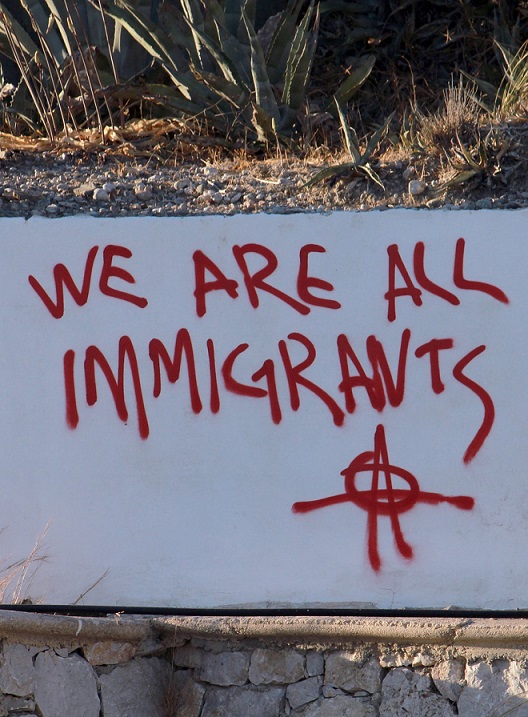What happens when a worker is detained by immigration as retaliation for having made a claim for justice in the work place? What are their rights? These are the two primary questions that arose on the 14th May, 2011 during a meeting organised by the Latin American Workers Association (LAWAS) at Southbank University in Elephant and Castle. The Prisma’s Memoirs. January 2012
Juan Galbete
Some thousands of cases were presented that denote this form of abuse in the work place of immigrants. One of them, a Henry Gomez who was exposed by one of the assistants, particularly catches our attention. Originally from the Bolivian city of Santa Cruz, married and father to a daughter and with another one of the way, Henry arrived in London in late 2003, one month after his wife, and both with student visas.
Henry worked for five and a half years in a restaurant in Brixton, South London. The stress bought on by the work, where Henry combined his work as a chef, his true passion, with that of part time cleaner and waiter for a single salary caused a heart arrhythmia.
His wife was also working in the restaurant and neither of them were given holiday pay, ‘Henry got very involved in his work and worked too much, a situation which the boss favoured a lot because he could then save on two salaries’, she maintains.
Henry spent five months having treatment for his heart arrhythmia and has a meeting at the end of July with the clinic to find out when he is finally going to be operated on. A year ago he and his wife, who also worked for a long time whilst pregnant, were fired without receiving any kind of severance pay. This happened after not being able to renew their visas in 2009, which were again denied a year later.
‘Before letting us go, the boss had sent our information to the immigration services and an additional letter in which we didn’t know what he had said, but we believe that it was the reason that they denied our visas,’ explains Henry’s wife. They turned to the Citizen Advice Bureau and the Latin American Workers Association (LAWAS) to inform them of their situation and one year later Henry found employment in the restaurant of the ex-wife of his old boss.
On Wednesday 11th May they found themselves in front of immigration agents in their work place, at what seemed to be on the advice of their old boss. Whilst one of them took down his details, the other took a file out containing all of Henry’s personal details, his family information, his situation in the country… He was detained and driven to the police station by London Bridge where they told him that he was not going to be thrown out of the country, but they did give him a detention letter.

They also warned him that if he was arrested again in an irregular situation, they would deport him and advised him to put all of the information referring to his situation in the United Kingdom in order. At the time of writing this article, Henry is still pending a hearing with his old boss to resolve his dismissal, a meeting that will take place at the beginning of June.
José Luis
‘We received various attacks from some of the bosses and supervisors so we made a complaint, but nothing was done about it’, pointed out Jose Luis. Following this, he received a number of threats, and was found without his papers in order.
On the 14th January a number of immigration agents turned up at his work place having received a report ‘that there were people without papers there’.
There were other cases and concerns. The subject of immigration and of ‘the illegality’ is a current topic worth fighting. It is a fight that slowly develops over much time (involving the defence of Latin American workers) such as that of the Colombian Alberto Durango (whose case was documented by The Prisma). A fight that now is also told by the Bolivian Jose Luis Sanchez. Both are cleaners and each one has his own story to tell. Jose Luis Sanchez was arrested in his work place as a retaliation against the claims that him and his wife (then pregnant) made to ask for a reduction in hours due to the state in which she was in.

Of the 10 cleaners there, 8 were arrested, amongst them Jose Luis, and were moved to a police station. After spending two days in a detention centre he was transferred to another where he spent a further two days before being freed.
Sanchez emphasized that ‘one of the biggest problems in many work places is when the Latin Americans themselves that do have papers exploit those who don’t’.
In this sense he pointed out that ‘companies use these people with in order to control those who don’t’.
‘When an immigrant starts to demand rights, the companies start to threaten them with the matter of immigration, and so the businesses make use of the migratory status of a person for exploitation’.
(Translated by Emily Russell – Email: er@tisef.com)
(Photos Pixabay)













.jpg)












